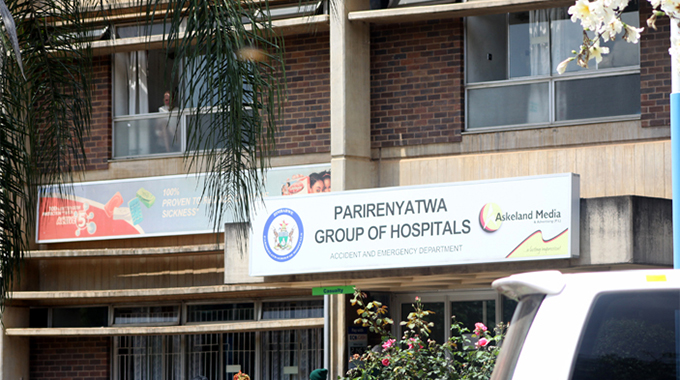Insiza farmers in innovative food, water harvesting project

Bulawayo Bureau
INSPIRED by the desire to enhance water harvesting and boost climate-proofed food production, seven farmers from Insiza District in Matabeleland South have availed a combined 700 hectares of land for cultivating different crops and are now seeking approval from the Zimbabwe National Water Authority (ZINWA) to construct a new dam that will anchor continuous food production in the area through irrigation.
The joint venture initiative is meant to ensure optimum land utilisation, and productivity in the area, which will further improve food security for the province and the country at large.
The project buttresses the Ministry of Lands, Agriculture, Fisheries, Water and Rural Development’s joint venture thematic focus, which allows land owners to partner with those with the financial muscle to unlock higher production gains.
Joint venture facilities are practical solutions that the Government is exploring to enhance partnerships that guarantee productivity.
The thrust of the joint venture framework is to match the Government’s empowerment drive by linking landowners who have no access to finance with working capital and promoting employment creation.
The country is increasingly adapting to the reality of climate change, hence water harvesting projects to boost irrigation farming have come under spotlight, especially in the drought-prone southern region.
Through such interventions, Zimbabwe is pushing towards becoming food self-sufficient and being a net exporter of agricultural produce such as wheat, tobacco, horticulture, and citrus produce, among others.
Mr Gibson Siziba, a land permit holder in Insiza District said before their joint venture initiative, farmers had challenges with resources, which hindered them from fully utilising the land.
He said this prompted them to enter into a joint venture with Mr James Ross Goddard, a prominent businessman interested in mining, farming and construction.
“We have a joint venture with Mr James Goddard on 700ha of land. We have managed to plant 60ha under maize, 60ha of soya beans and in February we will do 60ha land preparation for sugar beans,” said Mr Siziba.
He said plans were underway to construct an additional dam to augment water supplies from Insiza Dam, which is silted and has reduced capacity. Insiza dam cannot sustain 700ha of land under irrigation, said Mr Siziba.
The planned Manzamnyama Dam initiative has already been presented to the Zimbabwe National Water Authority (ZINWA) for approval.
“There are other six farmers there with smaller hectares who stand to benefit from the new Manzamnyama Dam to irrigate 700ha fields planned,” he said.
Statistics from the Lands, Agriculture, Fisheries, Water and Rural Development Ministry indicate that the construction of the high-impact dams budgeted at US$1,1 billion across the country is progressing well with the flagship dam Lake Gwayi-Shangani in Matabeleland North province now 73 percent complete while Kunzvi Dam is around 48 percent.
The Second Republic is on a drive to rehabilitate dams and construct new ones as part of efforts to avoid relying on rain-fed agriculture, but on irrigation, to avoid food deficit.
This is meant to achieve an upper-middle-income economy by 2030 in line with the National Development Strategy 1 economic blueprint.
During a recent tour of the Bulembe Irrigation Cluster by Minister of Lands, Agriculture, Fisheries, Water and Rural Development Dr Anxious Masuka, Mr Goddard suggested that the construction of Manzamnyama Dam will see them increasing production, which will result in all the land under the Joint Venture being fully utilised.
The Second Republic has been championing calls for farmers to be supported through various schemes and ensuring that private player participation is increased.
President Mnangagwa is on the record saying that the Land Reform Programme is irreversible and this has been backed by success on the ground.
The Agriculture and Food Systems Transformation Strategy, which ensures that land is utilised effectively to increase production has been initiated.
The country has already surpassed its agriculture target of US$8 billion way ahead of schedule prompting the target to be reviewed to US$13,75 by 2025.









Comments